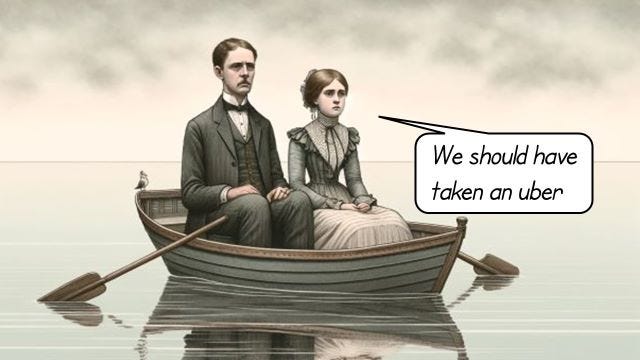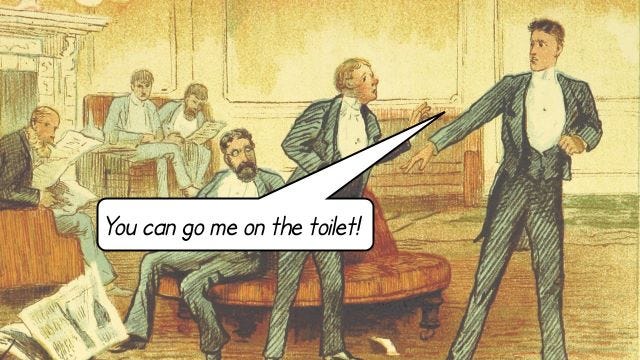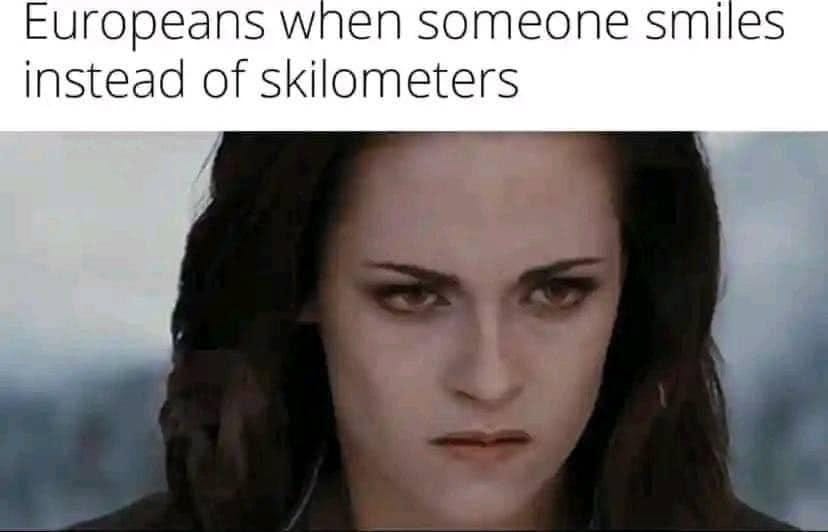Welcome to the latest instalment of English and the Dutch, the newsletter with tips and tricks, fun facts, interesting translations and other good stuff about how Dutch speakers speak English. In your inbox every third Wednesday of the month.
The newsletter is written by me, Heddwen Newton. I’m half Dutch, half British, and I work as a translator, teacher, and linguist. I am the owner of the website www.hoezegjeinhetEngels.nl, and I also write the newsletter English in Progress.
What do language writers do when their children have a summer break? They try to entertain their lovable little energy vampires all day and then collapse onto the sofa in the evening.
What do language enthusiasts do when they have a summer break? They email language writers with their questions.
This is not me complaining; I LOVE getting questions. But it is to explain that when my children started school again, I had an inbox with more than 30(!) difficult-to-translate Dutch terms and other questions to deal with.
This edition, therefore, is a grab-bag of the questions I got over the summer.
(To the person who sent me one email with fourteen Dutch policy-terms: I think I’ll do them next month and make it an ambtenarentaal-edition. If that’s not an edition that will get me readers in droves, then I don’t know what is!)
Quiz
This Dutch speaker isn’t saying what they want to say with these sentences. What are they trying to say? What does the English speaker understand? How should they have worded it?
I’m trying to connect this game console. Where does this cable go? I can’t see a thing. Open the luxaflex, could you? No, that doesn’t work, I need a torch.
I need some tie-wraps. I want to do something about this cable mess under the TV.
We don’t have any? App our neighbour and ask him if we could grab some of his, could you? I want to bring some order to this chaos.
Idiom
The idiom depicted below is the same in English and in Dutch. What is the idiom in English? What is it in Dutch?
Family ties
Dutch and English are cousins, perhaps even sisters, depending on how you like your familial metaphors. In this section, I highlight some surprising ways in which they are related. (Attention, the text below contains spoilers for the quiz above!)
Not all etymology needs to go way back. Words like “to google”, “walkman” and “frisbee” are obviously quite new, but it can still be interesting to look at their roots. In these cases, these terms have all been genericised; a brand name has become a generic term. In Dutch, this proces has the rather lovely name merkverwatering.
A reader noticed my article on the Dutch word tie-wrap, which, surprisingly to many Dutch speakers, is not a term that is understood in English. In English, we say “cable tie” or “zip tie”. In this case, the Dutch word is a genericised term (from the brand name TyRap), whereas in English the general term became the norm. Wouldn’t it be interesting, my reader asked, to compare genericised terms between English and Dutch?
Of course it would! And I wouldn’t be me if I didn’t immediately set about making an enormous list. I started by consulting Wikipedia, then I asked the help of my wonderful Facebook community De Vertalerskoffiehoek, and after that I moved on to Reddit for even more feedback and ideas. I like to think, therefore, that my list is pretty extensive. You can find it here.
There are quite a few terms on the list that most people don't realize were originally brand names. “Heroin”, for example, was named and sold as an over-the-counter, non-addictive cough suppressant by Bayer from the late 1890s. Bayer lost the trademark rights following the German defeat in World War I, and the drug was banned in the 1920s, the world’s governments having noticed that perhaps people weren’t using it just to suppress their coughs. Another now-genericized drug was developed by Bayer and lost after the war, but never banned: “aspirin”. (Source.) “Trampoline”, “vaseline”, “zeppelin”, “yo-yo”…. the list of unexpected genericizations is really quite long.
Those genericizations are the same in English and Dutch, but English also has a few where Dutch uses a more general term. “Bubble wrap” (bubbeltjesplastic), “escalator” (roltrap) and “flip phone” (klaptelefoon) are all ex-brand names, with Americans using more genericizations than Brits: “band-aid” (pleister), “magic marker” (viltstift), “Q-tip” (wattenstaafje) and “dumpster” (vuilcontainer) all have generic names in British English, namely “plaster”, “felt-tip pen”, “cotton wool bud” and something like “big rubbish bin”, those big ones you see in American movies being just as uncommon in the UK as they are in the Netherlands.
A few examples of Dutch using a genericization where English doesn’t are the aforementioned tie-wrap (cable tie), and the luxaflex (horizontal blinds) and appen (to text) from the quiz. The Dutch also like to genericize their drinks, with Dutch speakers happily ordering spa rood (carbonated mineral water), spa blauw (flat mineral water), chocomel (chocolate milk) or ranja (squash), and not being the least bit bothered if they get another brand. (Sinas and cassis are not genericized, I checked.)
Then there are words that are genericizations in both English and Dutch, but different ones. The Dutch inbussleutel comes from the German company Bauer und Schaurte, who in true German fashion named the thing inbus for “Innensechskantschraube Bauer und Schaurte”. Its English counterpart, the “Allen wrench”, was named a little more straight-forwardly after its inventor, Mr Allen.
Here is a link to the complete list again. (The linked article also includes my working definition of a genericization and answers to other questions that passing linguists may have.)
Untranslatable Dutch
Nothing is truly untranslatable; if there were such a thing, then any work of literature containing such a word would have to remain untranslated. Translators always find a way. However, there are some Dutch words and expressions that give translators a headache, because English just doesn’t have the same concept.
There were two terms that were really hard to translate in my inbox after the holiday, and they both came from the same person: language writer Gaston Dorren! It is no wonder both terms fall under the category “untranslatable Dutch”; Gaston speaks and writes excellent English, as anyone can see from his books.
volwaardig
Dictionaries give “full-fledged” for volwaardig, but I have a few quibbles with that. Firstly, it can’t be an adverb. You can volwaardig meedraaien, but you can’t *full-fledgedly participate*. Secondly, to be full-fledged is to be fully developed, or fully qualified; to be volwaardig is to be “of full value”. Not quite the same. I find that in practice it is often better to assume that “volwaardig” means about the same as “gelijkwaardig”. Then you can translate it by saying something like “of equal value”. Perhaps not exactly the same, but my best translation so far, and definitely better than the translations ChatGPT suggests, which are words like “meaningful” and “valuable”. Some translations in context here.
wat in het vat zit, verzuurt niet
When used in the sense of “a promise is a promise”, this idiom has a few possible translations, such as “I’m good for it” or “I stand by my commitment”. However, I cannot find any translation that sounds as fun and as cheerfully optimistic as this Dutch idiom. The best I can find is an English idiom which doesn’t really mean the same, but does have that same cheerful tone, and can often be used in the same contexts: “good things come to those who wait”. More translation options here.
Funny Dutch
Literally translating Dutch expressions into English often leads to very amusing results. Finding translations that do actually work in English is often not quite so easy. I like doing both!
These were the “funny Dutch” translation questions I found in my inbox at the end of the holiday:
a meeting tiger
I couldn’t find any good existing terms for a vergadertijger, but I found a few options that would work. Boardroom beast and meeting junkie were my favourites. More here.
butter by the fish
I always find it quite tricky to translate idioms that I never use myself, especially when my research suggests that not everyone uses the idiom in question in the same way. Does boter bij de vis refer to payment in cash, payment up front, or payment immediately after completion? Or is it a euphemistic way to refer to a payment that should not really have been asked for at all? In the first case, the American “cash on the barrelhead” or the British “cash on the nail” have the same ambiguity, making them a good choice. The second option could be translated by saying something like “I’ll need a little quid pro quo, if you know what I mean.” More here.
you can go on the toilet!
The first translation I came up with when a reader asked me to translate je kunt de pot op was not exactly family friendly, but actually there are quite a few non-vulgar English phrases to use in the situation where a Dutch person might tell you to go sit them on a commode. “Take a hike” and “get lost” are my favourites. I have made a list from least to most profane (= grof, onfatsoenlijk) here.
Quiz answers
I’m trying to connect this game console. Where does this cable go? I can’t see a thing. Open the luxaflex, could you? No, that doesn’t work, I need a torch.
What are they trying to say? - Ik probeer deze spelconsole aan te sluiten. Waar gaat deze kabel naartoe? Ik zie geen snars. Kun je de luxaflex open doen? Nee, dat helpt niet, ik heb een zaklamp nodig.
What does the English speaker understand? - If the English speaker happens to know the brand “Luxaflex”, they will understand you, but if (like many), they do not know that Luxaflex is a brand of venetian blinds, they will have no idea what it is you want them to open.
(If the blinds in the prospective gamer’s room are indeed of the brand Luxaflex, that would mean that this sentence was not technically incorrect. So let’s say that these hypothetical blinds are of a different brand, okay? We can’t all be master quiz writers, and I’m on a deadline here!)
How should they have worded it? - I’m trying to connect this game console. Where does this cable go to? I can’t see a thing. Open the blinds, could you? No, that doesn’t work, I need a torch.
If you stumbled over the word “torch”, you might be a speaker of American English. Americans say “flashlight”, but I, a Brit, say “torch”. (Also, I put it in there on purpose, to make it harder. Hihi!)
I need some tie-wraps. I want to do something about this cable mess under the TV.
What are they trying to say? - Ik heb een paar tie-wraps nodig. Ik wil iets doen aan deze kabelrommel onder de tv.
What does the English speaker understand? - Ik heb een paar Thaise wraps nodig. Ik wil iets doen aan deze kabelrommel onder de tv.
Here, as well, if the English speaker happens to know the brand TyRap, they will understand you. Otherwise they will wonder why you are suddenly into fusion cooking, and asking for Thai tortilla wraps.
How should they have worded it? - I need some cable ties. I want to do something about this cable mess under the TV.
We don’t have any? App our neighbour and ask him if we could grab some of his, could you? I want to bring some order to this chaos.
What are they trying to say? - Hebben we er geen? App de buurman even en vraag hem of we wat van hem mogen hebben, oké? Ik wil wat orde brengen in deze chaos.
What does the English speaker understand? - “App our neighbour” makes no sense in English. The English speaker will most likely just look at you in confusion.
How should they have worded it? - We don’t have any? Text our neighbour and ask him if we could grab some of his, could you? I want to bring some order to this chaos.
Idiom
In hetzelfde schuitje zitten
To be in the same boat
Bonus family ties
The word “weird” has been prominent in American politics this month, prompting a number of language writers such as Ben Zimmer to write about its etymology, which is rather wonderful.
Short version: The word "weird" comes from the Old English wyrd, meaning "fate" or "destiny." The "Weird Sisters" in Shakespeare's Macbeth were so-called because they predicted his future. In a large part thanks to these sisters, “weird” then came to refer to the uncanny or supernatural, and from there evolved to its current meaning: strange or odd.
Does Dutch have a word that connects “weird” to its original meaning of “fate” or “destiny”? It does! A magnificently everyday word: worden!
And finally…
And finally, a silly joke, funny video or interesting picture that I found on the Internet, that has something to do with Dutch and English.
(For explanation scroll down.)
Get free postcards
If you get ten people to sign up to this newsletter I will send you ten funny postcards with texts like “I stick you a heart under the belt”, “heartily thank” and “hurray, you are yeary!”
Get just three people to sign up, and you get access to a page with cartoons, jokes and memes about the English language. (With explanations, because I hate it when I don’t get a joke.)
Use the button below to get a special link that you can share via email or on social media.
Any mistakes in this newsletter were put in by me AFTER my amazing proofreader checked through it. Thank you, you wonderful person!
Would you also like to receive this newsletter two days early and have the chance to tell me everything that is wrong with it? (I love a ruthless proofreader!) Or just your thoughts, ideas and additions? (I love thoughts, ideas and additions!) Let me know by replying to this newsletter.
(Explanation of the joke: In Europe, people think in kilometres, not in miles. The joke takes that one step further by suggesting that Europeans therefore don’t “smile”, instead, they “skilometre”. The girl (who happens to be Kristen Stewart playing Bella Swan in the Twilight movies, but this is completely beside the point - it only matters that she is looking grumpy) is looking grumpy because she is European, and the hapless American she just met did it wrong. (You can tell that the meme was made by an American because of the spelling of “kilometre”.)







I like that you added the torch = flashlight explanation. When I was young, I ran across it in Ian Fleming novels and it took me a long time to understand what he meant.
Another such word is "squash" (the kid drink), which I'd venture to say very few Americans understand.
Wat betreft skilometers: als Amerikaan heb ik geen aangeboren gevoel voor hoe ver een mijl is. Ik zou dus gewoon aangeven wat er op het bord staat, wat in Europa in kilometers zou zijn. Maar ik neem aan dat een Europese vriend die bij mij op bezoek is kan me toch de wenkbrauwen fronsen.